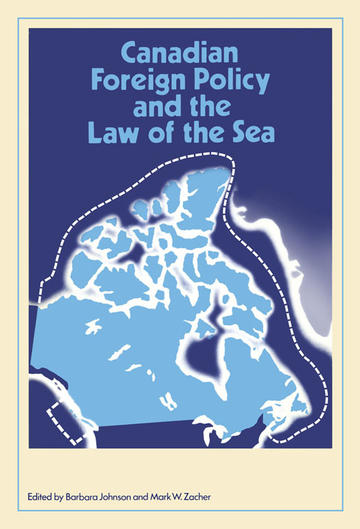About BC Books Online
BC Books Online was created for anyone interested in BC-published books, and with librarians especially in mind. We'd like to make it easy for library staff to learn about books from BC publishers - both new releases and backlist titles - so you can inform your patrons and keep your collections up to date.
Our site features print books and ebooks - both new releases and backlist titles - all of which are available to order through regular trade channels. Browse our subject categories to find books of interest or create and export lists by category to cross-reference with your library's current collection.
A quick tip: When reviewing the "Browse by Category" listings, please note that these are based on standardized BISAC Subject Codes supplied by the books' publishers. You will find additional selections, grouped by theme or region, in our "BC Reading Lists."
Since the 1960s, there have been intensive international negotiations to revise the law of the sea. These discussions culminated in the convening of the Third United Nations Conference on the Law of the Sea in December 1973 and in four additional sessions up to September 1976. Whether the almost 150 participating states will be able to reach an accord in 1977 or later on, the myriad issues on their agenda is still uncertain.
Two major issues have been the extension of coastal-state jurisdiction over resources and activities and the estblishment of an international regime to govern the exploitation of the deep seabed.
Canada's most significant role has been that of a leader of the "coastal-state grouping," which has sought to expand states' jurisdiction over fisheries, seabed resources, scientific research, and pollution control within a 200-mile economic zone and sometimes beyond. A number of these Canadian policy goals have already been accepted by a large majority of the participants in the conference.
In this role, Canada has found itsself opposed to many of its traditional allies among the developed nations with large fleets engaged in commerce in distant waters, and concerned about the traditional freedom of the high seas, and has aligned itself with the coastal developing nations of Africa, Asia, and Latin America.
The seven essays in this volume examine the development of Canadian policies on the major law of the sea issues and the outcome of the negotiations on them. In so doing, the studies have analysed Canada's dramatic seward expansion and involvement in one of teh most important United Nations Conferences.
Barbara Johnson is a Post-doctoral Fellow at the Institute of International Relations, University of British Columbia. Mark W. Zacher is Director of the Institute of International Relations, University of British Columbia.



